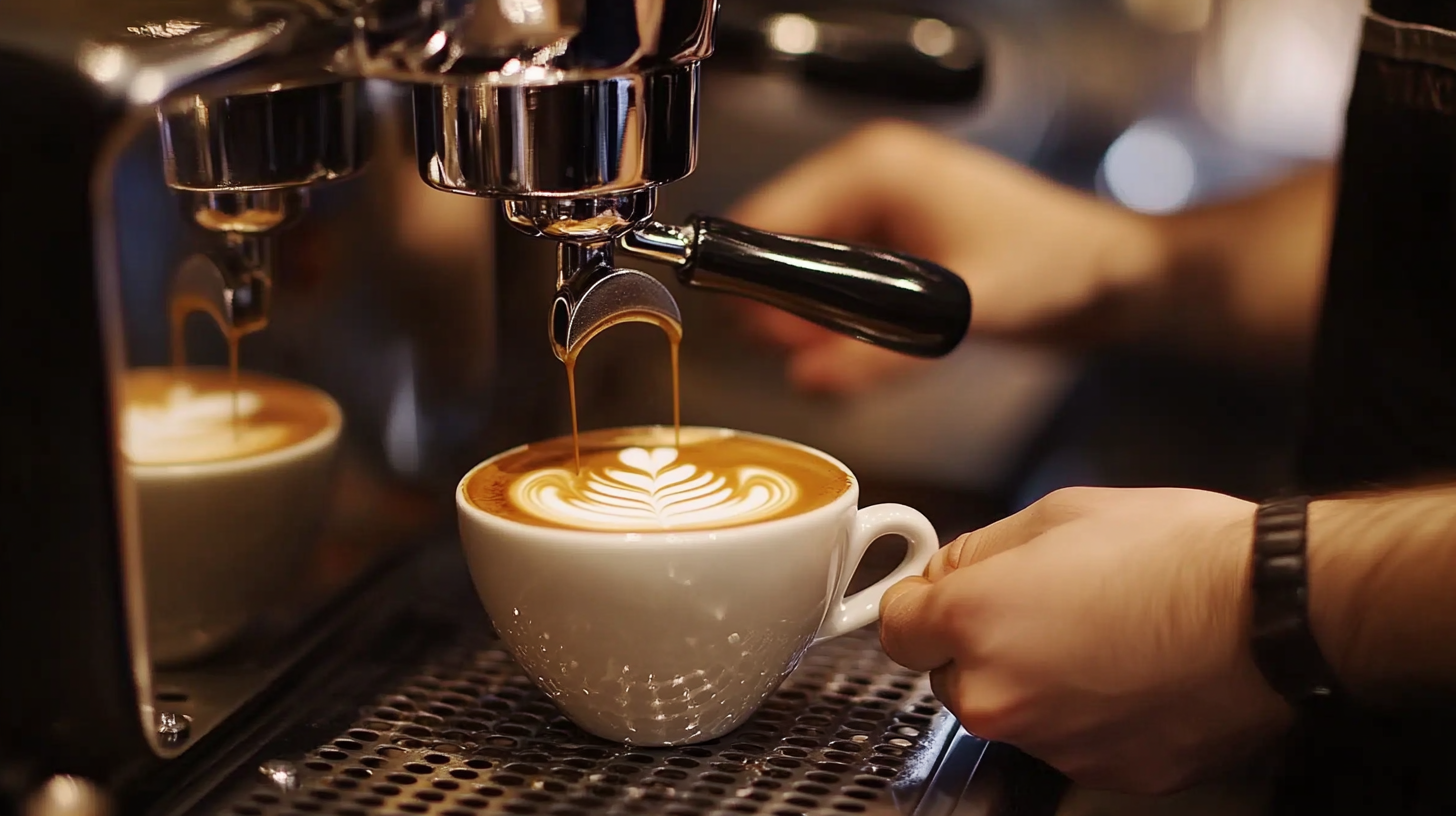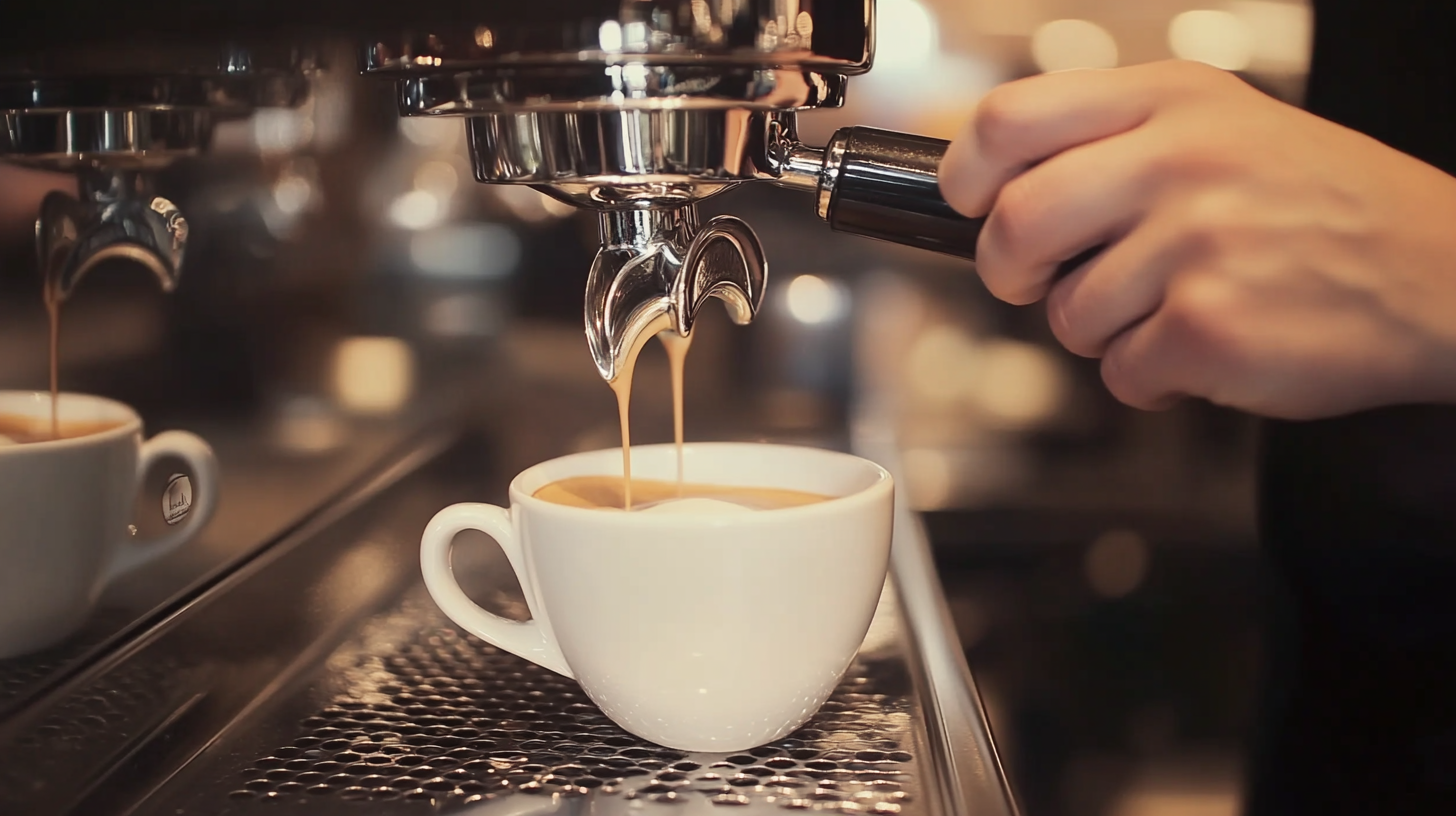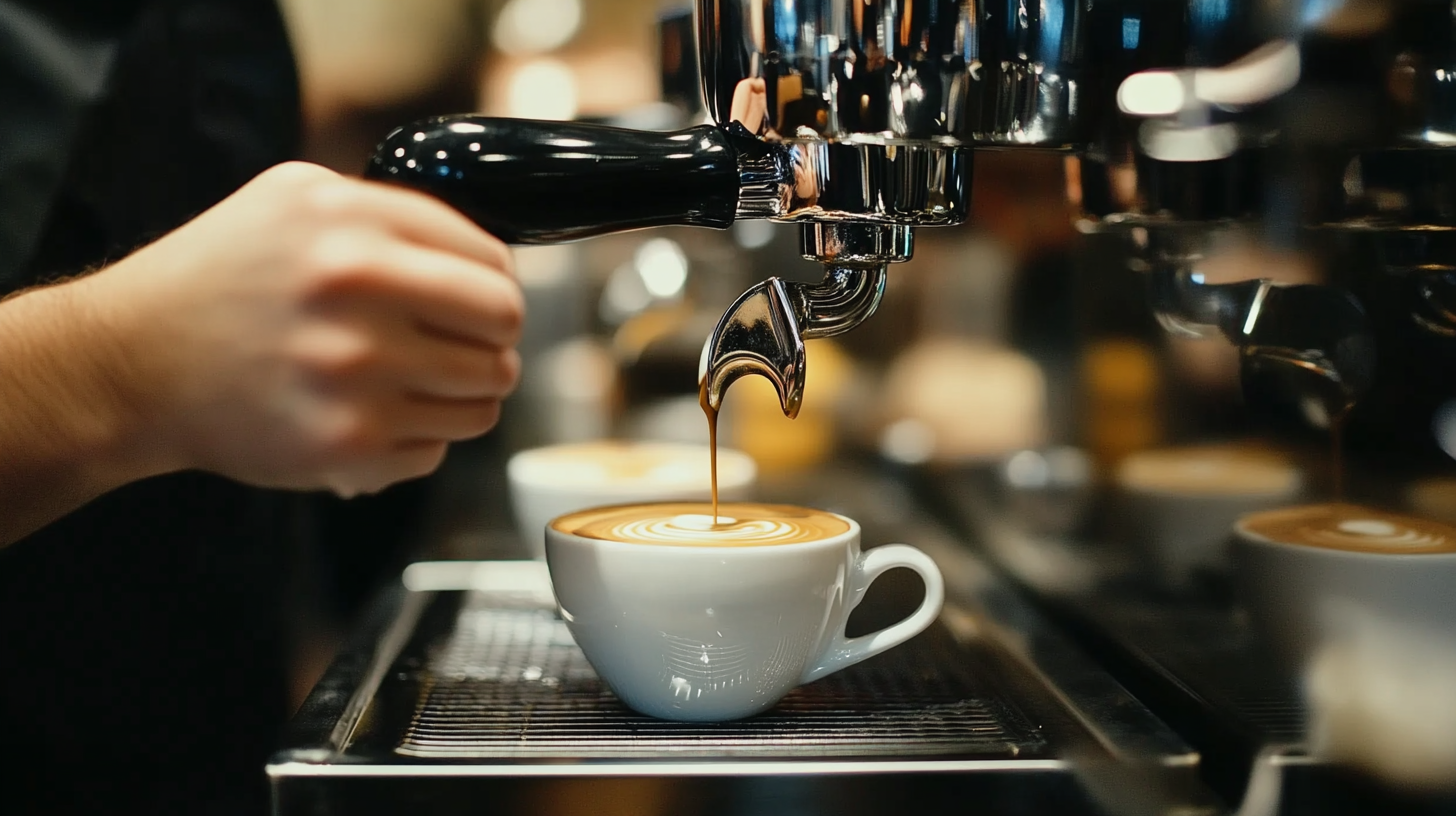Crafting Excellence with Best Cups Barista for a Global Audience

In the world of coffee, the right tools can make all the difference, and when it comes to brewing excellence, "Cups Barista" emerges as a key player for both quality and performance. This blog aims to guide you through the essential factors to consider when selecting a manufacturer of premium barista cups, ensuring that you can elevate your coffee experience to a global standard.
From the materials used to the design and functionality, understanding what constitutes an outstanding cup is crucial for both aspiring baristas and seasoned professionals. Whether you are aiming to enhance your café's offerings or simply enjoy a better cup at home, this comprehensive guide will equip you with actionable insights on choosing the best Cups Barista that meets your needs.
Join us as we explore the intertwined realms of craftsmanship and quality, and help you make an informed decision in your quest for the perfect barista cup.
Understanding the Evolution of Barista Culture in a Global Context
The evolution of barista culture has transformed coffee preparation into an art form appreciated worldwide. From the humble beginnings of coffee brewing in small cafes to the sophisticated espresso bars in vibrant cities, baristas have become central figures in this journey. Today, they are not just coffee makers but innovators who embrace diverse methods and flavors that reflect global tastes.
To excel in the craft of a barista, one should prioritize honing their skills. **Tip 1:** Take the time to learn various brewing techniques such as pour-over, French press, and siphoning. Each method brings out unique flavors, allowing for a deeper understanding of coffee’s complexities. **Tip 2:** Engage with the local coffee community. Participating in workshops or competitions can provide valuable insights and inspire creativity.
As the world becomes more interconnected, baristas also influence local coffee cultures by blending traditional practices with contemporary twists. **Tip 3:** Explore coffee sourcing techniques; building relationships with farmers can lead to better quality beans and a more sustainable coffee culture. This approach nurtures a global appreciation for coffee while allowing local traditions to flourish.
Top 5 Essential Skills Every Best Cups Barista Must Master
Crafting Excellence with Best Cups Barista for a Global Audience
To thrive as a barista in today’s global coffee scene, mastering essential skills is key. First and foremost, a strong foundation in coffee knowledge is vital. This includes understanding various coffee beans, brewing methods, and the art of cupping. Baristas should frequently taste different varieties and learn to identify flavor profiles, which will enhance their ability to create the perfect cup.
Additionally, mastering milk texturing and latte art is crucial. A skilled barista knows how to steam milk to the ideal temperature and texture, creating a creamy base for espresso drinks. Practicing basic latte art designs not only adds visual appeal to beverages but also helps in building connections with customers. Consider taking time daily to refine these techniques and incorporate unique designs to stand out.
Lastly, excellent customer service cannot be overlooked. A barista who excels in communication can create a welcoming atmosphere that invites repeat customers. Engaging with patrons, remembering their names and orders, and being attentive to their preferences can elevate the coffee experience. Make it a point to actively listen to customer feedback and adapt your service to meet their needs.
Top 5 Essential Skills Every Best Cups Barista Must Master
The Impact of Quality Cups on Customer Experience and Satisfaction
The quality of coffee cups significantly influences customer experience and satisfaction in the hospitality industry. According to a report by the Specialty Coffee Association, approximately 70% of consumers believe that the type of cup used contributes to their overall enjoyment of a beverage. Customers become more engaged when the presentation of their drink matches their expectations for quality, which in turn enhances their perception of the café or restaurant.

Furthermore, a study conducted by the National Restaurant Association revealed that establishments that prioritize premium materials for their drinkware see a 20% increase in repeat customers. Well-designed cups not only elevate the visual appeal but also enhance the tactile experience, making every sip memorable. This emotional connection fostered through quality cups ultimately translates into greater customer loyalty and higher levels of satisfaction, proving that investing in the right beverage containers is essential for thriving in today’s competitive market.
Innovative Coffee Trends Shaping the Future for Baristas Worldwide
In the ever-evolving world of coffee, baristas are continually pushing the boundaries of flavor and presentation. Innovative coffee trends are not just shaping the drinks we enjoy but also transforming the way baristas approach their craft. From sustainable sourcing to cutting-edge brewing techniques, the future of coffee is vibrant and dynamic. With a global audience increasingly discerning about their coffee experiences, baristas must stay ahead of the curve to excel.
One of the key trends is the rise of specialty coffee, which emphasizes quality and unique flavor profiles. Baristas are encouraged to engage in direct trade and explore single-origin beans to elevate their offerings. **Tip:** Experiment with different brewing methods, such as pour-over or siphon brewing, to showcase the unique characteristics of each bean. This not only enhances the flavor but also tells a story that resonates with a mindful audience.
Another significant shift is the incorporation of technology in coffee preparation and customer interaction. Smart coffee machines and apps for ordering are becoming commonplace, allowing for a seamless experience. **Tip:** Leverage social media platforms to share your coffee creations and connect with your clientele. This not only builds your brand but also invites feedback and fosters a sense of community among coffee lovers worldwide. By embracing these innovative trends, baristas can craft excellence that not only satisfies a global audience but also contributes to the ongoing evolution of specialty coffee.
Crafting Excellence with Best Cups Barista for a Global Audience
| Country | Top Coffee Trend | Impact on Barista Skills | Popular Coffee Type |
|---|---|---|---|
| United States | Specialty Coffee Shops | Advanced Brewing Techniques | Cold Brew |
| Italy | Espresso Culture | Traditional Preparation Methods | Espresso |
| Japan | Coffee Aesthetics | Artisan Presentation Skills | Single Origin |
| Australia | Flat White Popularity | Milk Frothing Skills | Flat White |
| Sweden | Fika Culture | Pairing Skills | Filter Coffee |
Why Sustainability Matters: Best Practices for Eco-Friendly Coffee Crafting
Sustainability in coffee crafting is becoming a crucial factor for both consumers and businesses in today's market. As climate change gains prominence, a substantial 89% of consumers are now inclined to purchase sustainable products. This shift in consumer behavior places pressure on brands to adopt environmentally friendly practices in their operations, especially in the coffee industry, where the impact of production can significantly affect ecosystems.
To ensure an eco-friendly coffee crafting process, baristas can implement best practices such as sourcing beans from sustainable farms that prioritize organic farming and fair trade principles. Additionally, utilizing biodegradable or compostable cups can minimize waste significantly. According to a recent industry report, businesses employing sustainable practices not only appeal to environmentally conscious consumers but also enhance their brand image, driving customer loyalty and growth.
Tips for baristas looking to incorporate sustainability include:
1. **Choose Local Suppliers**: Support local farmers who utilize sustainable farming methods to reduce the carbon footprint associated with transportation.
2. **Implement a Waste Management System**: Establish recycling and composting stations in your workspace to effectively manage waste materials.
3. **Educate Customers**: Share information about the sustainable practices behind your product offerings, helping consumers make informed choices that align with their values.



